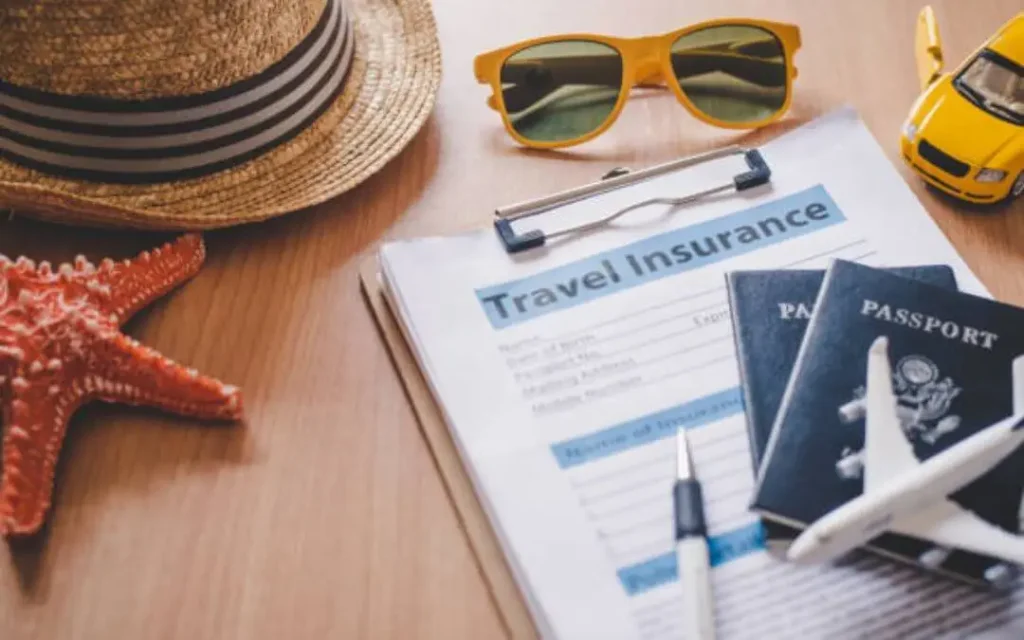Are you confused about which travel agency to go for among the multitude of options available in Nigeria? Or are you overwhelmed by the complexities of travel planning and would like to understand exactly how a travel agency can help? If so, then you’ve come to the right place.
What do travel agencies do? They play the very important role of ensuring you have a hassle-free travel experience, assisting with everything from booking your flight and accommodation to planning your itinerary and other travel-related logistics. However, it doesn’t end here.
Without a clear picture of the responsibilities of a standard travel agency, you may find yourself overwhelmed with lots of options for which travel agency to go for. This doesn’t help you as you may end up choosing the wrong travel agency. Over my years of experience in the travel industry, I have interacted with several Nigerian travel agencies, learning all there is to know about their operations, responsibilities, and most importantly, what separates the good from the bad.
In this blog, I will reveal 5 essential functions of Nigerian travel agencies to help you decide on the best travel agency that will give you value for your money. Without any further ado, let’s dive right in.
What do Travel Agencies do? – 5 Functions of Travel Agency
The fundamental role of travel agencies is to act as intermediaries between travelers and travel suppliers. They leverage relationships with travel suppliers as well as their years of experience to provide travelers with personalized travel itineraries, and other service offerings. Ideally, a travel agency should treat each client differently, depending on the client’s travel budget, needs, and preferences, and tailor their services uniquely to each client.
Hyper-personalization for me is putting the right product in front of the customers in the context of travel,” Markus explains. “What is important for me on this trip? It depends on when and with whom I’m traveling, for how long, for what purpose, and so on
Markus from AltexSoft
If your travel agency is not tailoring its services to suit your unique needs, such as large travel agencies using a one-size-fits-all method for their service offerings, then they’re probably not the best for you. Deciding on which travel agent to go for among the many travel agencies available online, demands that you look out for this alongside the 5 essential functions of travel agencies:
Understanding Client Needs

It all starts with understanding your needs. Every client is unique in the sense that they all have what makes them tick. One client may prefer a trip laden with activities while another may prioritize a vacation, where they travel out to simply relax and spend quality time with their loved ones. It’s the fundamental responsibility of a travel agency to pay attention to the needs of the client. A standard travel agency will ask relevant questions to learn about your travel objectives, budget, travel activities, favorite destination, etc. At this stage, the agent in charge also prefers recommendations based on his experience and expertise to the client.
Additionally, more sophisticated travel agencies can leverage data analytics to get an idea of their client’s preferences, by gaining insight into past bookings. All of this insight is to help plan the perfect travel experience for the client, which is very important.
Help with Travel Documentation

A standard travel agency should offer assistance to their clients when it comes to visa requirements and applications, passport renewal, and other necessary documentation to make the application process seamless for the client. They should also assist in reviewing your application before submission and advise on necessary supporting documents to increase your chances of approval and prompt submission of your application.
Usually, as a first-time applicant, you’re prone to making errors, such as overlooking a mandatory document in your application, leading to terrible consequences like a visa refusal. Having agents to help out with documentation is particularly useful, especially if you’re a first-time applicant and you’re unfamiliar with the process.
Itinerary Planning

A standard travel agency is responsible for mapping out your entire travel based on your unique requirements. This will usually feature accommodation information, restaurant reservations, travel dates and times, logistics information, and fun activities like hiking, skydiving, etc. This way, you are well aware of the entire travel plan before the trip commences.
Travel agencies leverage their connections and relationships built over time, to secure the best deals with service providers such as airlines, hotels, and tour operators. These deals are usually not available to the public, and help clients to conserve money.
Customer Service

A proper travel agency builds a lifelong relationship with the client by providing exceptional customer service from the moment first contact is initiated. Suppose you walk into a travel agency and you’re not accorded attention and respect as a prospective client. What’s to say that you will be accorded attention when your luggage is missing at your destination’s airport and you need the intervention of your agency? A travel agency should provide good customer service to the point when the client is back from their trip. They should be accessible throughout your journey and should call you occasionally when you’re at your destination to check in with you.
Provision of Travel Insurance

If anything goes wrong during your travel, being prepared is important. You know what they say – better safe than sorry. This is the role that travel insurance plays. A travel agency is responsible for enlightening their clients about travel insurance, and its importance. They recommend the most suitable insurance coverage and guide the purchase of the insurance coverage. If an unexpected incident occurs, e.g. a lost luggage or an accident, agencies can advocate on behalf of the client and reach out to the insurance company to sort out issues promptly.
What are the Different Types of Travel Agencies
As we continue our exploration of what travel agencies do, it’s important to understand that travel agencies are of different types. Each type of agency is unique in its service offerings and as such, their responsibilities may differ from each other. Let us look into the different types:
Offline/Traditional Travel Agency

These are the types of agencies that were present before the evolution of technology. They are otherwise known as brick-and-mortar agencies, and they are structured in a way that clients have to meet up with the agents at a physical location for travel planning. With the evolution of technology, this type of travel agency has reduced un demand however, they have a unique feature which sets them apart.
Due to their physical nature involving one-on-one interaction with clients, offline travel agents are better able to curate personalized travel plans for their clients. This is possible because of direct communication which builds trust and rapport between the travel agency and the client, compared to online travel agencies for instance (more information on OTAs soon).
Another perk of offline agencies is that they sometimes organize travel events like workshops, and presentations, where clients can connect, fostering a sense of community. If you’re not comfortable with the internet space or making travel plans online, you can leverage offline agencies to take care of your travel planning.
Online Travel Agency (OTAs)

With the advent of the internet came online travel agencies. These agencies provide a comfortable, hassle-free, and quick alternative for travel planning. They leverage the internet through websites, applications, and social media to offer services to clients. Travelers can book flights, hotel reservations, travel activities, and other travel services on their mobile devices. This is what differentiates them from the traditional travel agencies. Travelers can also leverage deals and discounts, giving them an incentive to come back to use them each time they are planning a trip.
Online travel agencies can also leverage data analytics to offer personalized services to clients. Some popular online travel agencies include airbnb.com, expedia.com, and many more.
Niche Travel Agency

This type of travel agency was created because clients are attracted to experiential travel, where their agency has deep knowledge about the specific type of travel they would like. Niche travel agencies cater to a defined demographic of people and focus on different travel types such as cruise trips, cultural trips, family trips, adventure trips, medical tourism, ecotourism travel, etc. By specializing in a specific niche, e.g. cruise trips, niche agencies can offer personalized travel planning depending on their client’s preferences, resulting in a memorable travel experience.
Business Travel Agency

Business travel agencies focus on corporate organizations. They are also known as travel management companies (TMCs). The advantage of opting for them as an organization is that they specialize in corporate travel hence, they can serve organizations better than a general travel agency due to their expertise in this niche. They arrange travel for business and vacation clients and offer services such as risk management services, corporate travel management, invoicing, and expense tracking.
They leverage connections to get cost-effective rates for booking flights, accommodation, and transportation, providing corporate organizations with budget-friendly options. They also provide 24/7 customer support, ensuring that corporate clients are comfortable throughout their trip. Some popular business travel agencies include American Express Global Business Travel, CWT, and AAA Travel.
Independent Travel Consultants

Independent travel consultants work as solo entrepreneurs and help clients make travel arrangements. They carry out all the responsibilities of travel agencies, including booking flights, accommodation, travel documentation, etc, for their clients. The only difference is that they are not an employee of a travel agency. However, this does not imply that they are alone. They work closely with travel suppliers, such as hotels, tour operators, and logistics companies, to provide services to their clients.
Additionally, in some cases, independent travel consultants partner with host agencies for support, and resources, in the form of commission processing, training programs, marketing assistance, networking opportunities with other solo travel agents, etc.
Importance of a Travel Agency
Travel agencies play a crucial role in the tourism industry, helping members of the public select and organize their ideal holiday on a personalized basis. They leverage their extensive networks and industry knowledge to offer recommendations to their client and also get them the best deals available. They save clients lots of time and in many cases, money too! It’s a myth that booking trips online is always cheaper than opting for travel agents.
Additionally, travel agencies are the best to get you out of any emergency that may come up during your travel. Standard travel agencies are always reachable throughout your travel, up to the point when you return, making for a seamless and hassle-free travel experience.
What is the Difference Between a Travel Agent and Tour Operator?
Though the roles of tour operators and travel agents overlap in some respects, they differ in their major responsibilities. Tour operators are responsible for creating travel packages and itineraries while travel agents act as middlemen between tour operators and clients, by selling these travel packages. Tour operators can also sell these travel packages directly to clients. Due to this, travel agents have connections with many tour operators for different destination types, niches, and travel experiences.
To sum it all up, travel. agencies play a vital role in creating a memorable travel experience and a standard travel agency should carry out functions like understanding their client’s needs, helping out with travel documentation, providing top-notch customer service, as well as other roles indicated in this blog. I encourage you to check out other blog content for adequate knowledge on everything travel-related. Also, don’t hesitate to leave a comment if you have one. Safe travels!



